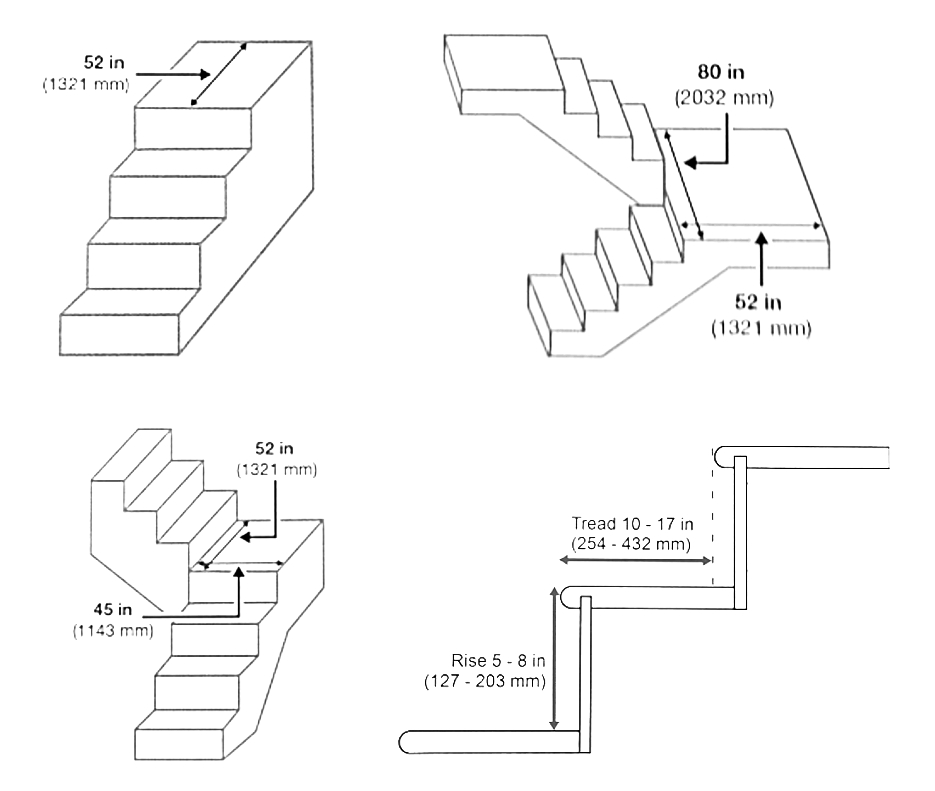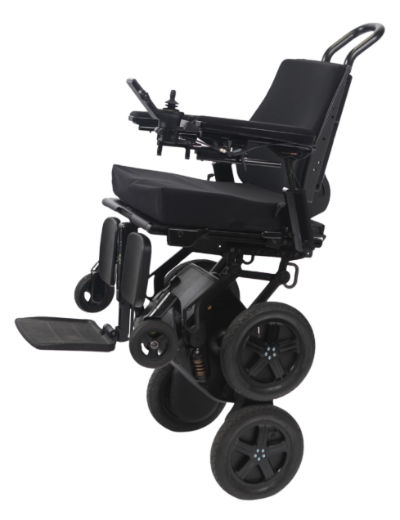Frequently Asked Questions
Like any other electric wheelchair, the iBOT® Personal Mobility Device (iBOT® PMD) has a rehab seat with all options for support and adjustments. You can customize several options for the seat cushion, the backrest, armrests, neck support, hip support, legrest, joystick, etc. The chair is suitable for people who need mobility assistance. As long as you can operate a joystick (possibly with a modified handle), you can use the iBOT® PMD.
With advanced technology the iBOT® is able to be used in six different operating modes: Standard, 4-Wheel, Balance, Stair, Remote and Docking (for your vehicle). You will receive extensive training to fully familiarize yourself with the operating modes. As part of the training, the iBOT® is customized and set to your center of gravity. After this you can use it like any other wheelchair, both indoors and outdoors.
In addition to the standard seat, various seating components are available to meet all needs. There are many options for support and customization. You can customize many options for the seat cushion, the backrest, armrests, neck support, hip support, leg support, joystick, etc.
The chair is suitable for people who need mobility assistance. In addition to the seating components, there are variable settings for speed, acceleration, and joystick movements that can be customized to you during training.
While using the iBOT® PMD you can change your sitting position during the day using the tilt function in standard and balance mode. It is also possible to adjust the seat hieght in the 4-wheel and balance mode to be able to choose the desired height at any time.
Yes, the iBOT® PMD is a category 1 medical device and fully tested to meet all requirements of European MDR and CE legislation. The certificate of conformity is available on request. All specific information about this is registered in the Eudamed database, as is legally regulated in the MDR regulations.
The manufacturer of the iBOT® Personal Mobility Device is Mobius Mobility from Manchester, USA. The iBOT® PMD was designed by DEKA Research & Development, by inventor and product developer Dean Kamen.
The importer and distributor of the iBOT® PMD in Europe is 2KERR. Within the Netherlands 2KERR takes care of the distribution itself and outside the Netherlands 2KERR works together with partners in the different countries. Please contact us for more details.
The iBOT is no more expensive than a comparable electric wheelchair. How expensive an electric wheelchair is, requires a nuanced explanation:
The iBOT® PMD is an advanced, high quality product, with many different possibilities. Think of an electric high/low seat adjustment, tilting seat adjustment, but also, for example, 4-wheel drive for off-road driving. There are also other high-quality electric wheelchairs with electric seat adjustment (high/low/tilt), but there is really no product quite comparable to the iBOT® PMD with all capabilities in onze device. Yet the price of an alternate electric wheelchair is approximately comparable to the price of the iBOT® PMD.
With mobility devices there are a lot of possibilities, choices and options. As a result, through the necessary or desired adjustments, every wheelchair or iBOT® PMD is in fact a custom fit product. Depending on the choices that are made, a lot of variation in price is possible. Feel free to contact us if you want to know more about this.
The product and functionality has been developed and intended as an electric wheelchair that people can use all day long. The rehab seat is also suitable for this and there are many adjustment options to meet your needs.
Our advice is to include your (occupational) therapist or rehabilitation doctor in a personal fitting and to determine whether the iBOT® PMD is suitable for you.
The iBOT® 3000 and iBOT® 4000 were developed twenty years ago by Dean Kamen, DEKA Research & Development and together with Johnson & Johnson marketed in the US under the brand Independence Technology. Over the years, the technology has been renewed several times and the current iBOT® Personal Mobility Device is the fourth generation. Meanwhile, the iBOT® PMD is now manufactured and sold by Mobius Mobility in the US.
It is new because the iBOT® PMD has recently been completely renewed, it is now approved as a medical device for the European market and 2KERR is now marketing the iBOT® PMD in Europe for the first time as an importer.
The product and functionality has been developed and intended as an electric wheelchair that people can use all day long. For you as a user, our advice is to involve your (occupational) therapist or rehabilitation doctor in a personal fitting to determine whether the iBOT® PMD is suitable for you.
With regard to the technology, the iBOT® PMD has well-designed technology in which reliability is paramount. The susceptibility to malfunctions is very low and the functionality is well thought out. It is a further developed product based on twenty years of user experience.
As standard, the iBOT® PMD has four Lithium-Ion batteries with which a range of 30 km is possible. In practice, it is sufficient for most users to be able to use the wheelchair all day without any problems.
If desired, the capacity can optionally be expanded to six batteries, so that considerably more range is achieved for an extensive user.
Due to the different modes of the iBOT® PMD, there is a suitable mode available for almost every terrain, both indoors and outdoors. From carpeting (inside) to the beach (outside). A lot is possible thanks to the strong four-wheel drive.
If you are not convinced by the website and videos about, for example, off-road use, make an appointment and convince yourself during a test drive.
Climbing stairs requires a technique that you are taught during training. It can be done in two ways; solo or assisted.
To be able to climb stairs (solo) you need sufficient arm functionality to be able to control the device wheel and cluster rotation. Solo stair climbing is less about strength and more about technique, but you must have sufficient grip strength.
Assisted stair climbing means that someone else (for example your partner) is trained to safely climb and descend stairs with the iBOT® PMD and you. In principle, everyone can learn this.
Stair mode allows you to climb up and down indoor and outdoor stairs. The clusters rotate the drive wheels over each other in order to climb the stairs. It is important to assess stairways, landings, handrails and steps to determine if they are suitable for safe stair climbing.
Stair treads and risers are flat and level (not sloped) and at least 71 cm wide. Landing is flat and at least 1.32 m deep for solo climbing of 1.78 m deep for assisted stair climbing.
- Straight stairs need a landing of at least 1.32 m deep.
- U-Shaped stairs need a landing of at least 1.32 m deep and 2,03 m wide.
- L-Shaped stairs need a landing of at least 1.32 m deep and 1.14 m wide.
- Winding, Spiral, Pie-Shaped and Circular stairways cannot be climbed with the iBOT.
- Step shape and size requirements: tread 25 to 43 cm and rise 12 to 20 cm.
See images below for clarification.

Yes, the iBOT® PMD is approved for occupied transport. This means that you can remain in the device during transport in a car or wheelchair taxi.
In addition, it is also possible to drive a car from the iBOT® PMD itself. An EZ Lock docking system is used for this, so that the iBOT® PMD is securely anchored to the floor of your car. Ask for more information, we are happy to help you.
Yes, the iBOT® PMD meets the requirements of an electric wheelchair, which airlines are obliged to bring. The batteries are designed to remain in the device during ait travel. We recommend that you always carefully read the rules and guidelines in advance, as this can differ per airline.
Weight base station (incl. batteries):
80.7 kg excl. seat weight
Range (on 4 batteries):
• 28 km in standard mode
• 30 km in 4-wheel mode
• 35 km in balance mode
Turning circle:
• 71.2 cm in standard mode
• 57.4 cm in 4-wheel mode
• 54.9 cm in balance mode
Base station dimensions:
64cm (W) x 81cm (L).
Load capacity:
23 to 136 kg.
Height seat to floor:
• 47.5 cm in standard mode and docking mode
• 64.5 to 77.2 cm in 4-wheel mode
• 77.5 to 90.9 cm in balance mode
Maximum slope:
• 10° in standard mode
• 12° in 4-wheel mode
• 8° in balance mode
• 20° in remote mode
Maximum obstacle height:
• 3.8 cm in standard mode and balance mode
• 12.7 cm in 4-wheel mode
Maximum speed:
• 11 km/h in standard mode
• 8 km/h in 4-wheel mode
• 5 km/h in balance mode




